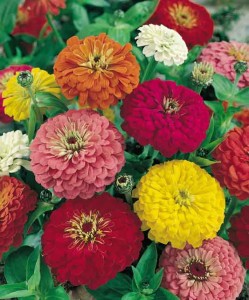Dahlias and Christianity – What’s in common?
 A green thumb I am not. As a kid, my father would line my brothers and I up every weekend to work the family garden, generally several acres of greenbeans, corn, squash, cucumbers, bell peppers, chile peppers, tomatoes, cantelopes and watermelons. So at an early age, I developed a strong dislike of working in the garden, it was like punishment. However as I have gotten older I have come to appreciate vegetables and gardening more and even try my hand now and again at growing things.
A green thumb I am not. As a kid, my father would line my brothers and I up every weekend to work the family garden, generally several acres of greenbeans, corn, squash, cucumbers, bell peppers, chile peppers, tomatoes, cantelopes and watermelons. So at an early age, I developed a strong dislike of working in the garden, it was like punishment. However as I have gotten older I have come to appreciate vegetables and gardening more and even try my hand now and again at growing things.
I have found that flowers are one of the things I can do OK with. Generally they are not too expensive to plant and yeld both beauty and fragrance when they succeed. One flower that I have come to know a little about is the Dahlia, named in honour of a Swedish botanist Anders Dahl and originates in Mexico.
The Dahlia was brought to Europe during the 18th century by Spanish explorers. The beautiful flowers grew well in European soils, but couldn’t survive even the mildest winters, and the dahlia therefore remained a rarity until the invention of the greenhouse and winterization of plants. Once the invention of greenhouses made the keeping of dahlias easier, botanists starting developing new and beautiful variants of the plants. Today there are tens of thousands of different types of Dahlias which has been made possible by the fact that the dahlia has eight genes that control its appearance while most other flowers only have two. Today the diversity of dahlias is stunning and it can be hard to even believe that two different dahlias are of the same genus. One of them can be a 4 ft high bush with large filled flowers while the other can be less than a foot high with small simple flowers. At this point in history no one knows how many species of dahlia actually existed in the wild in the first place!
Dahlias are grown from bulbs, or more correctly from rhizomes. The bulbs can be planted in most types of soil as long as the soil is not too wet. It should be appreciated however that the dahlia grows much better in certain soils even if it accepts a wide variety of different soils. Dahlias require a lot of nutrients and it is strongly recommended to regularly fertilize your dahlias. You should also make sure to give it a lot of water to make sure that it is able to absorb all the nutrients provided to it.
In the right soil and proper mix of neutients, your dahlias will thrive and will need pruning. In fact with careful pruning the plant will yeild many flowers over its blooming season so that you can enjoy many fresh boquets. If you want your Dahlia to provide a continuous, extended flower show, you will need to remove the spent buds promptly. It is important to remember that Dahlias are a somewhat sensitive plant and should under no circumstances be subjected to sub-zero temperatures, as one single night below freezing is enough to kill a dahlia. If you live in an area where the winter temperature drops below the freezing point and you want to keep your dahlias you’ll have to dig up the bulb and keep it in a dark cool place during the winter.
So why the lesson on Dahlias? I thought that they provide an intersting correlation to Christianinty. So bear with me for a few minutes more.
1. Where you are planted is important. While growth can occur in various soils, better growth can occur in the right soil.
Psalm 1, says ” Blessed is the man who does not walk in the counsel of the wicked or stand in the way of sinners or sit in the seat of mockers. But his delight is in the law of the LORD, and on his law he meditates day and night. He is like a tree planted by streams of water, which yields its fruit in season and whose leaf does not wither. Whatever he does prospers.”
Matthew 13: 3-9 “Then he told them many things in parables, saying: “A farmer went out to sow his seed. As he was scattering the seed, some fell along the path, and the birds came and ate it up. Some fell on rocky places, where it did not have much soil. It sprang up quickly, because the soil was shallow. But when the sun came up, the plants were scorched, and they withered because they had no root. Other seed fell among thorns, which grew up and choked the plants. Still other seed fell on good soil, where it produced a crop—a hundred, sixty or thirty times what was sown. He who has ears, let him hear.”
Matthew 13:18-23 “Listen then to what the parable of the sower means: When anyone hears the message about the kingdom and does not understand it, the evil one comes and snatches away what was sown in his heart. This is the seed sown along the path. The one who received the seed that fell on rocky places is the man who hears the word and at once receives it with joy. But since he has no root, he lasts only a short time. When trouble or persecution comes because of the word, he quickly falls away. The one who received the seed that fell among the thorns is the man who hears the word, but the worries of this life and the deceitfulness of wealth choke it, making it unfruitful. But the one who received the seed that fell on good soil is the man who hears the word and understands it. He produces a crop, yielding a hundred, sixty or thirty times what was sown.”
2. Neutrients and water are essential to blooming.
John 6:35 “Then Jesus declared, “I am the bread of life. He who comes to me will never go hungry, and he who believes in me will never be thirsty.””
3. Care and prunning should be excercised regularly.
John 15:1 – 8 “I am the true vine, and my Father is the gardener. He cuts off every branch in me that bears no fruit, while every branch that does bear fruit he prunes so that it will be even more fruitful. You are already clean because of the word I have spoken to you. Remain in me, and I will remain in you. No branch can bear fruit by itself; it must remain in the vine. Neither can you bear fruit unless you remain in me. “I am the vine; you are the branches. If a man remains in me and I in him, he will bear much fruit; apart from me you can do nothing. If anyone does not remain in me, he is like a branch that is thrown away and withers; such branches are picked up, thrown into the fire and burned. If you remain in me and my words remain in you, ask whatever you wish, and it will be given you. This is to my Father’s glory, that you bear much fruit, showing yourselves to be my disciples.”
4. This visible is only evidence of what is planted
John 5:14 -16 “You are the light of the world. A city on a hill cannot be hidden. Neither do people light a lamp and put it under a bowl. Instead they put it on its stand, and it gives light to everyone in the house. In the same way, let your light shine before men, that they may see your good deeds and praise your Father in heaven.”
5. Harsh winters can be destructive to life
1 Timothy 6:20 – 21 ” . . . . guard what has been entrusted to your care. Turn away from godless chatter and the opposing ideas of what is falsely called knowledge, which some have professed and in so doing have wandered from the faith.”
2 Peter 3:17 – 18 ” Therefore, dear friends, since you already know this, be on your guard so that you may not be carried away by the error of lawless men and fall from your secure position. But grow in the grace and knowledge of our Lord and Savior Jesus Christ. To him be glory both now and forever!” Amen.
